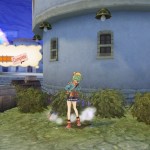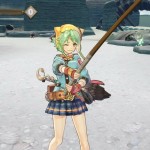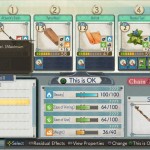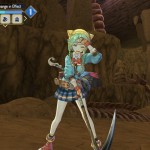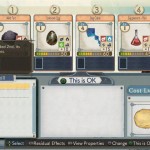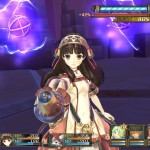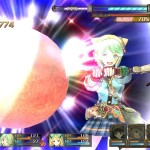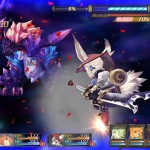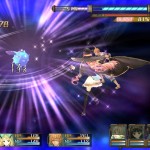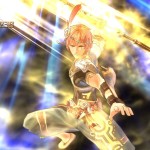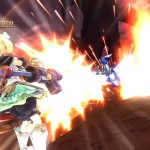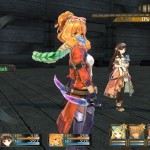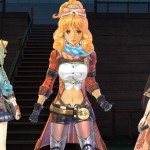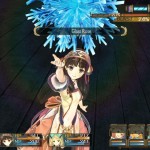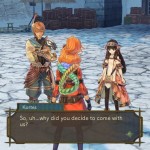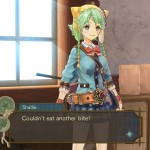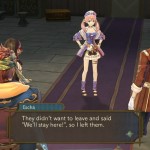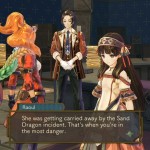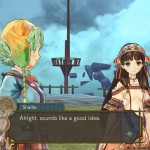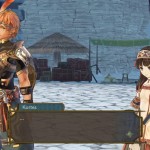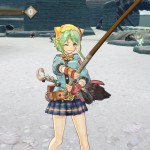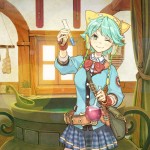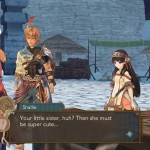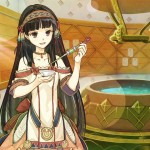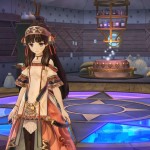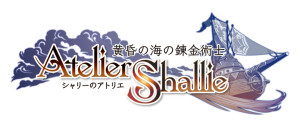 The Dusk series of Atelier games has been pretty interesting. It’s tried to make a slightly darker story line where the world’s outlook is a bit bleak, while still being cute and adorably light-hearted. And it’s succeeded in that endeavor, and even addressed some long-running issues regarding gameplay mechanics and balance. Each entry saw improvements that made the series more approachable to newcomers. But this entry demonstrates that some benefits can be offset by hiccups or exchanges that were made in the process. The result is still good, but these changes keep the game from truly elevating above its predecessors.
The Dusk series of Atelier games has been pretty interesting. It’s tried to make a slightly darker story line where the world’s outlook is a bit bleak, while still being cute and adorably light-hearted. And it’s succeeded in that endeavor, and even addressed some long-running issues regarding gameplay mechanics and balance. Each entry saw improvements that made the series more approachable to newcomers. But this entry demonstrates that some benefits can be offset by hiccups or exchanges that were made in the process. The result is still good, but these changes keep the game from truly elevating above its predecessors.
The game is a direct sequel to Escha and Logy, but taking place 5 years after the conclusion of that game, and in a different region. The setting is in the Sand Sea, which once had water, now barren due to the encroaching presence of the Dusk, which kills anything that it spreads to. As a result, the water supply is decreasing in the few pockets of civilization that still reside there on the outskirts. A young woman named Shallistera is traveling to find a method of fixing the drought that has afflicted her village of Lugion. She’s also an alchemist, so she is using her skills to aid in her search. There is also a second story with another young woman named Shallotte, who dreams of getting rich with her alchemy. It’s also cute that that the bear the name nickname of Shallie, to the point of the two calling each other ‘Shal’ and ‘Lotte’ respectfully. Unlike Escha and Logy, each character has a more unique perspective. There are plenty of events that only each character witnesses in their stories. They also have their own advantages when it comes to synthesizing items or in combat. For instance only Shallotte can use a special battle command Mix, which combines two items to make a new more powerful one. Shallotte can fish as well. So there’s more of an incentive to do a second playthrough as the character you don’t pick the first time.
There have been some gameplay tweaks that refine the combat for the better. New to the game is the burst system, which a gauge builds up with repeated attacks. Once maxed out, Burst mode activates, and for several turns, damage inflicted on the enemies increases by about double. Even more damage can occur if the enemy was in a ‘broken’ state, which is a status that makes an enemy lose their turn and take more damage than usual. To inflict breaks, enemies need to be beaten on repeatedly. The enemy is also capable of this as well, so be careful. The burst system now also makes it clear that performing chain assist attacks are the best way to inflict real damage on the tougher monsters and bosses in the game. It’s also the only way to build the Ultimate attack gauge now. But when players pull off a chain and finish with the third assist attack, that character will do a powered up attack similar in the way that Escha and Logy’s special assists worked in Alchemists of the Dusk Sky. In addition to the burst gauge, there is a new assist boost skill. Depending on the percentage of the burst gauge once it activates, your assist party members can activate a boost of some kind to greatly turn the tide of battle in your favor. There’s also a neat growth system that gives characters some nice additional stat and skill boosts.
With all these gameplay improvements though, there seems to be some kind of equivalent exchange going on, as some improvements also introduce some faults; or some issues remaining unaddressed. One complaint I’ve always took issue with was series’ insistence on enforcing a time limit on the player. While that mechanic has always instilled an element of tension, it’s not for everyone. The previous entries have made time management easier, but this game finally does away with it. However, this decision seems to have made the game a bit more grindy in exchange. The game is now chapter based. Since there isn’t a time limit, you need to complete Life Tasks to advance to the next chapter. But the more you goof off, the more tasks become harder to complete, as more required tasks get tacked on. There is an upper limit, but it still can be a tedious process. In addition to the Life Task, there are sub tasks. Replacing the bingo system from past games, they will grant additional perks for their completion. While this is a good thing, there are way too many experience bonuses. Sure, they making level grinding less tedious, getting money or items occasionally would have been nice. Especially since money gained though requests can vary wildly, and often on the low end.
Other issues have more to do with the localization. While it’s mostly well done, there are some oddities. The game is still only partially dubbed, making it necessary to switch to the Japanese audio track just to not have mostly silent dialog. The anime video that plays in the intro isn’t subtitled, which is just an odd omission. Some English dub lines also don’t match up with text either. Despite these little hiccups, the game is still a fun little JRPG. The music is great, although not as much as the previous game. Story is in the same boat here, but the character events are the real draw here and the two perspectives of the Shallies encourages a second playthrough for great replayability. If you like the Atelier games or just like light-hearted RPG’s, definitely give this game a go.
Gameplay
Graphics
Sound
Overall

